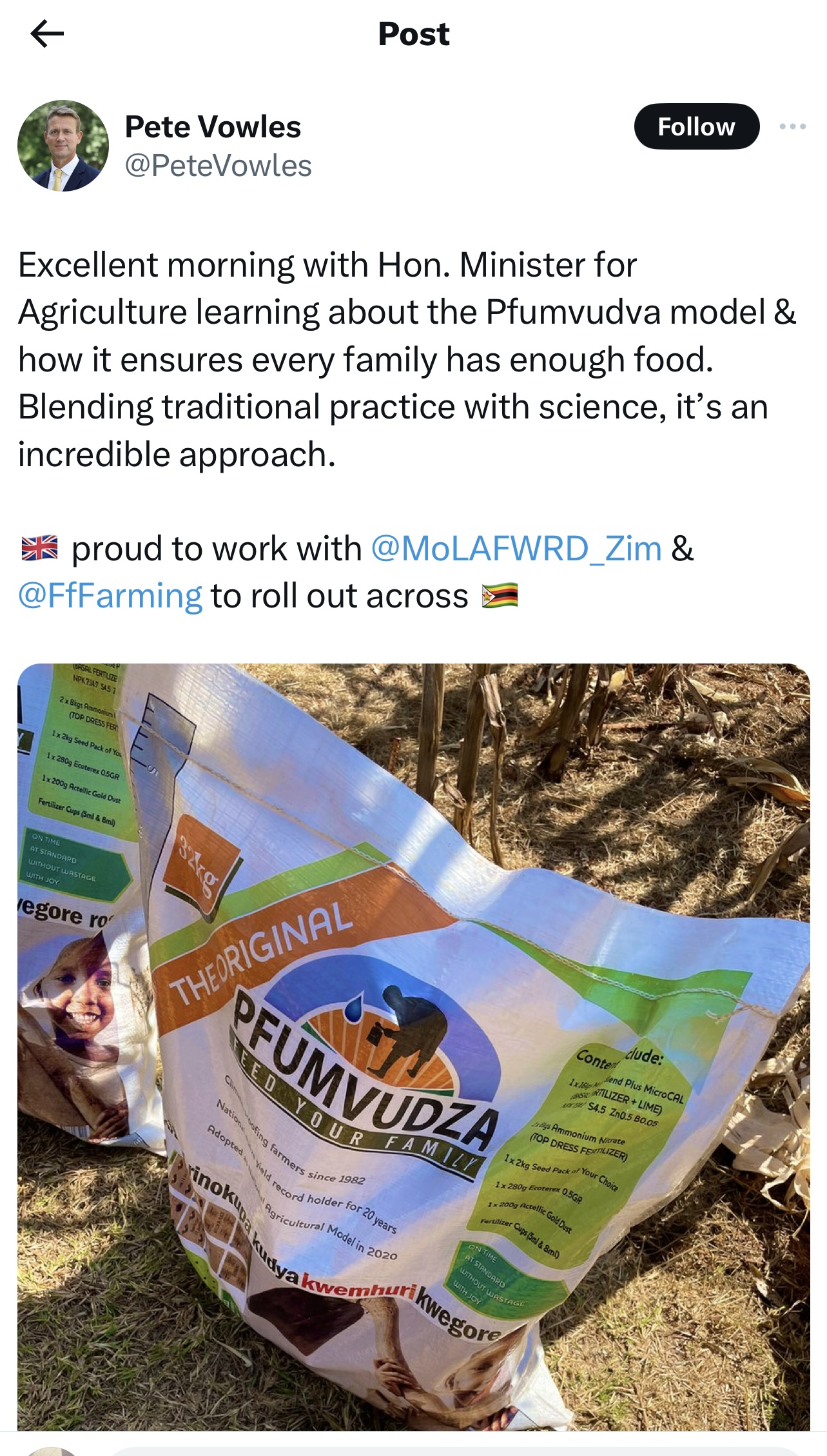The UK ambassador to Zimbabwe, Pete Vowles has endorsed the country’s Pfumvudza/Inthwasa model of farming highlighting the former colonial masters support of the Country’s agricultural policy despite policy variations between the two countries especially following the land reform of 2000.
Taking to social media site X, formerly Twitter, Vowles emphasised his excitement in contributing to the program, “Excellent morning with Hon. Minister for Agriculture learning about the Pfumvudva model & how it ensures every family has enough food. Blending traditional practice with science, it’s an incredible approach. proud to work with @MoLAFWRD_Zim & @FfFarming to roll out across.
The model has been a positive for the country as it has availed a sustainable farming strategy that has enabled households to produce for themselves, the country reserves as well as seed for future production while utilising minimal land as conserving the environment in an era climate change is topical.
According to the United Nations website, “By incorporating conservation agriculture practices, a 0.125 ha plot can produce over 625 kg, up to 1500kg of maize grain. An average household of 5 people will require 550kg/year (at 110kg/capita/year). Each household is expected to deliver at least 75kg contribution to the Strategic Grain Reserve, the 75Kgcontribution should unlock package for the next season.”
The model has also been key in facilitating contribution of small scale farmers to the country’s strategic reserve as the country has of late experienced an increase in agricultural productivity.
“At yield level of at least 625kg/plot/household, the total production from 1.6 million households would be 1 000 000 MT and added to production from the commercial input programme (1 090 000 MT).” The United Nations Website also emphasised.
According to a paper by the Commercial Farmers Union, Pfumvudza is a major contributor to cutting across the gendered challenges of farming as by maximising yields over small areas women have equal opportunities to men.
The project has also been key in the country’s efforts to meet the initial sustainable goal of eradicating hunger as it has availed improved access to food owing to the program’s low capital demands.
The positive remarks come at the most opportune moment as UK and Zimbabwe had fallen out over the land redistribution program and alleged human rights abuses, with the shift potentially showcasing a new ray of hope.
With the old adage going, ‘all work and no play makes Jack a dull boy’, the activity has been key in lightening up for the service users’ from their usually hectic activities that seek to improve their health and wellbeing.

